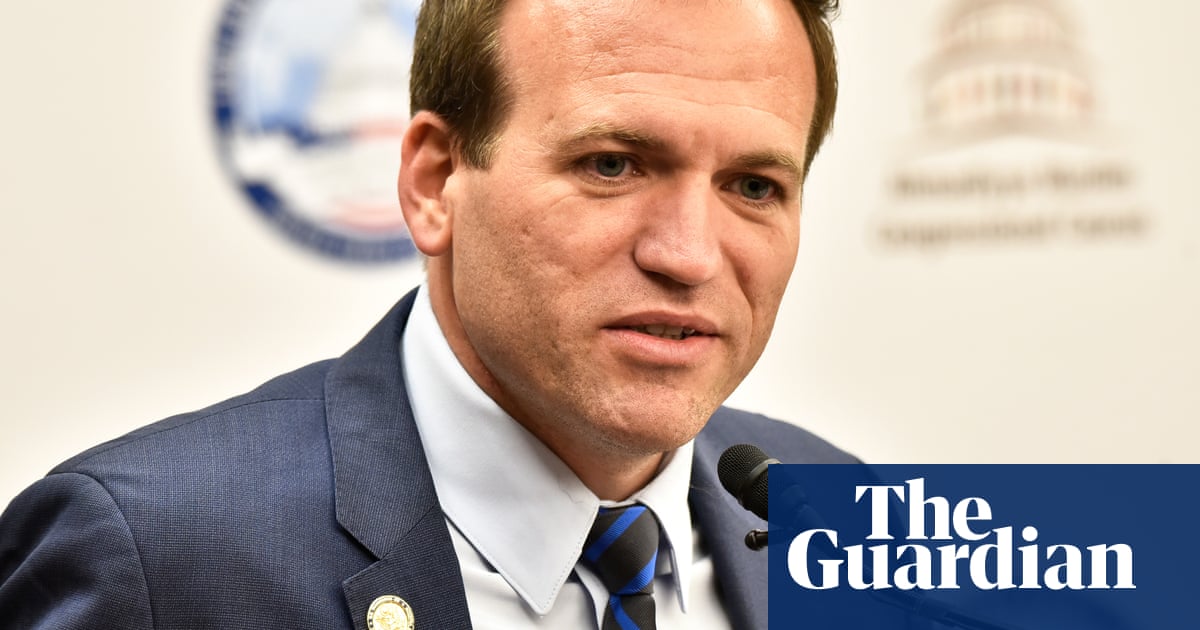An evangelical leader and adviser to Donald Trump on interfaith issues has been appointed the new head of the Gaza Humanitarian Foundation (GHF) as the controversial US- and Israeli-backed initiative attempts to recover from top-level resignations during a tumultuous rollout last week.
Johnnie Moore, a member of the US Commission on International Religious Freedom and founder of the boutique advisory firm Kairos Company, was appointed the new head of the GHF after Jake Wood, a former marine, resigned,saying that he could not guarantee the GHF’s independencefrom Israeli interests.
Moore has been a vocal defender of the GHF who has bristled at public criticism of the rollout, telling the UN chief, António Guterres, on X that reports of Palestinians killed and injured while seeking aid inGazawas “a lie … spread by terrorists”.
Major partners continue to abandon the GHF, which was launched with vocal support from US government officials. Boston Consulting Group (BCG), a US consulting firm, said it had cancelled its contract with the GHF on Tuesday amid growing media scrutiny into the group’s work and sources of funding.
In a post on its social media, the GHF announced that its distribution points would be closed on Wednesday for “update, organization and efficiency improvement work”. The group did not give more information on the improvements it intended to make. Operations would resume on Thursday, the group claimed.
In a statement, Moore lauded the GHF’s reported delivery of more than 7m meals in the last week, numbers that haven’t been independently verified, and also took aim at media reports about murky finances and chaotic rollouts of the aid distribution centres in Gaza.
Local health officials said thatat least one person was killed and more than 50 people injuredon 27 May when Israeli troops opened fire on the second day of operations at a GHF distribution centre.
“GHF believes that serving the people of Gaza with dignity and compassion must be the top priority,” Moore said in a statement. “We welcome others to join us and urge extreme caution against sharing unverified information from sources that have repeatedly issue demonstrably false reports.
“False reporting of violence at our sites has a chilling effect on the local population and we can think of no greater disservice to a community in dire need,” he said.
A biography on the Kairos website calls Moore a “noted evangelical friend of the State of Israel” and says that he has played an important role in US outreach to Middle Eastern governments, including in the conclusion of the Abraham accords to normalise relations between Israel and Arab states. John Acree, the acting director of the GHF, said that Moore has a “proven record of principled leadership and hands-on humanitarian work”.
But Moore’s paucity of experience working with major charitable organisations will make it difficult for him to refute criticisms about the GHF’s lack of independence and experience dealing with a major humanitarian crisis.
BCG, which was reported to be handling key logistics planning, abandoned the project late last week and a representative told CNN that “unapproved follow-on work relating to Gaza lacked buy-in from multilateral stakeholders and was stopped on May 30”.
“BCG has not and will not be paid for any of this work,” the organisation said.
BCG also told reporters that they had placed the employee responsible for overseeing the project on administrative leave pending an internal review. The Washington Post, which first reported on BCG cutting ties with the GHF, said that the consulting group was instrumental in planning GHF’s operations.
Three people closely connected to both theGHF and BCG told the Washington Post that it would be difficult for the foundation to continue to function without the consultants who helped create it.
“In addition to helping develop the initiative in close coordination with Israel, BCG set the prices for paying and equipping the array of contractors who built four distribution hubs in southern Gaza to deliver the aid,” the newspaper reported.
